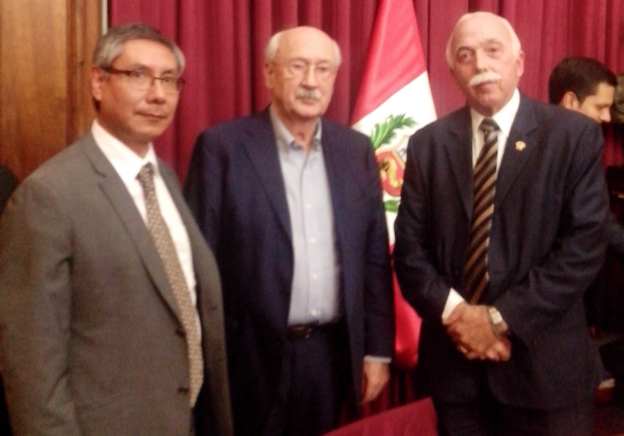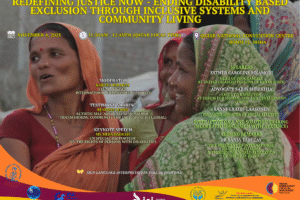
Jun 27, 2014 | News
The ICJ today welcomed the significant steps forward taken by the UN Human Rights Council aimed to develop and strengthen the protection of people from corporate human rights abuses around the world.

Jun 15, 2014 | Events
On 14 June 2014, the ICJ convened an international seminar on the rights of the child, the business sector and the international legal framework.
The one-day seminar took place in the context of the efforts by the ICJ and other organisations to assist in the implementation of General Comment No 16 of the Committee of the Rights of the Child on State obligations regarding the impact of the business sector on children’s rights. Participants included members of the Committee, staff of the Office of the High Commissioner for Human Rights, UNICEF, the ILO and NGO representatives in the domain.
A summary of the seminar and main interventions is now available.
ICJ Seminar on Business and Children’s Rights – June 14 (download in PDF)

Jun 11, 2014 | Advocacy, Non-legal submissions
The ICJ delivered an oral statement to the UN Human Rights Council today, in the interactive dialogue with the Working Group on business and human rights.
The statement, made jointly with FIDH, Franciscans International, and CIDSE, noted the lack of implementation of the existing UN Guiding Principles on Business and Human Rights at the national level. It highlighted the systematic obstacles faced by many victims of human rights violations involving businesses.
The statement called on the council to continue building on the normative and institutional progress made by the Guiding Principles, and take decisive action to start a process towards the elaboration of a legally binding instrument in the area of business and human rights.
BHRstatement ICJ FIDH CIDSE FI-advocay-non legal submission-2014 (full text in pdf)

Jun 2, 2014 | Events
The ICJ, with the International Federation for Human Rights (FIDH), will be convening a high-level lunch meeting on ‘Business and Human Rights: Enhancing Standards and Ensuring Redress’ on 4 June 2014.
The meeting will discuss the needs and options for enhancing international law and standards pertaining to the transnational operation of business enterprises, with a particular emphasis on ensuring redress for victims of human rights abuses.
The meeting will be moderated by Geneviève Paul, Head of Globalisation and Human Rights for FIDH. Speakers will be Bertrand Swiderski, Sustainability Director for the Carrefour Group; Regine Barth, Head of Environmental Law & Governance Division at the Oko-Institut; Debbie Stothard, FIDH Secretary-General and Coordinator of the Alternative ASEAN Network on Burma; and Carlos Lopez, Senior Legal Adviser at the International Commission of Jurists.
FIDH-ICJ-BHRStandardsAndRedress-Event-2014 (download flyer in PDF)

May 13, 2014 | News
An ICJ Mission to assess the respect of social rights in the Peruvian agro-export industry concluded a field visit to the country with bleak preliminary conclusions.
The Mission of observers, which included Philippe Texier and lawyers Alberto L. Gomez Z. and Carlos Lopez, focused their assessment in the Valley of Ica, south of Lima. On Wednesday 7 May, the Mission shared their visit conclusions with the Sub-committee on Labour and Social Security of the Peruvian Parliament.
Philippe Texier, former judge at the Court of Cassation of France and former chair of the UN Committee on Economic, Social and Cultural Rights, told the Parliamentary Sub-committee that conditions of work in the agroexport industry are precarious, allow cases of child labour and fall generally short of international standards accepted by Peru through international conventions.
The final report of the Mission panel will be released at a later stage after additional research and consultation is carried out.
While in Peru, the panel held meetings in Lima and in Ica with a wide range of trade unions, labour and health authorities, local NGOs, experts, individual workers and even working children.
The experts also paid visits to the field to see workers and children, were interviewed by IDL Radio and made a presentation of preliminary conclusions to the Parliamentary Sub-Committee on Labour and Social Security.
The agro-export industry in Peru mainly produces asparagus, mangoes, avocado pears, paprika and grapes, most of which is exported to Europe and North America.
It has experienced exponential growth during the last decade, where important national and international investments were made in this industry.However, economic growth has not been matched with improvements in social conditions of workers and the local population.
Contact:
Carlos Lopez, Director, Business and Human Rights, carlos.lopez(a)icj.org +41 22 979 3816








